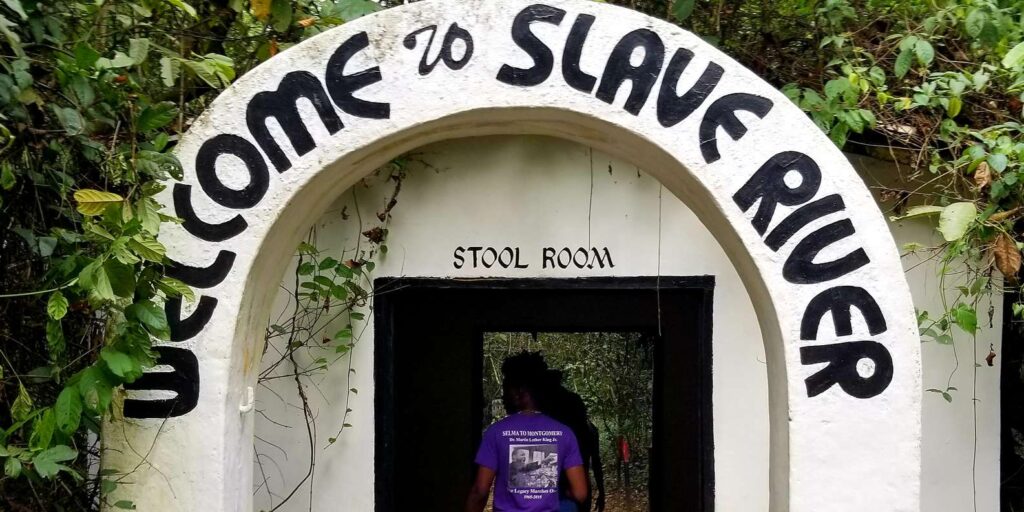
Assin Manso Slave River Site
The Assin Manso Slave River Site, located in Assin Manso in Ghana’s Central Region, is a solemn memorial and heritage site connected to the transatlantic slave trade. It was here that enslaved Africans, after being force-marched from the northern and middle parts of Ghana, were allowed their “last bath” in the river before being taken to the slave dungeons at Cape Coast and Elmina Castles. Today, the site serves as a place of remembrance, reflection, and cultural reconnection for people of African descent worldwide.
Quick Facts
Location: Assin Manso, Central Region, Ghana (off the Cape Coast–Kumasi highway).
Historical Significance: Site of the “last bath” where enslaved Africans were bathed before final transport to the coastal castles.
Reconnection Role: Hosts the annual Emancipation Day celebrations in Ghana.
UNESCO Status: Recognized as part of the Slave Route Project.
Best Time to Visit: Emancipation Day (August 1st) for cultural ceremonies, or year-round for historical tours.
Highlights & Things To Do
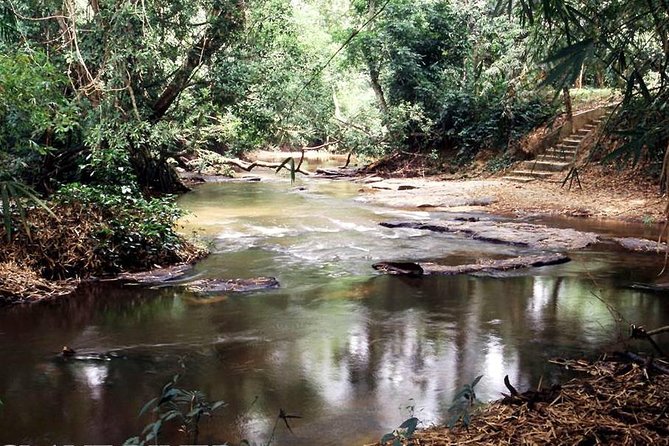
The Slave River (“Ndonkosuo”)
Walk to the river where enslaved Africans were forced to wash before being taken to the castles. This is one of the most moving features of the site.
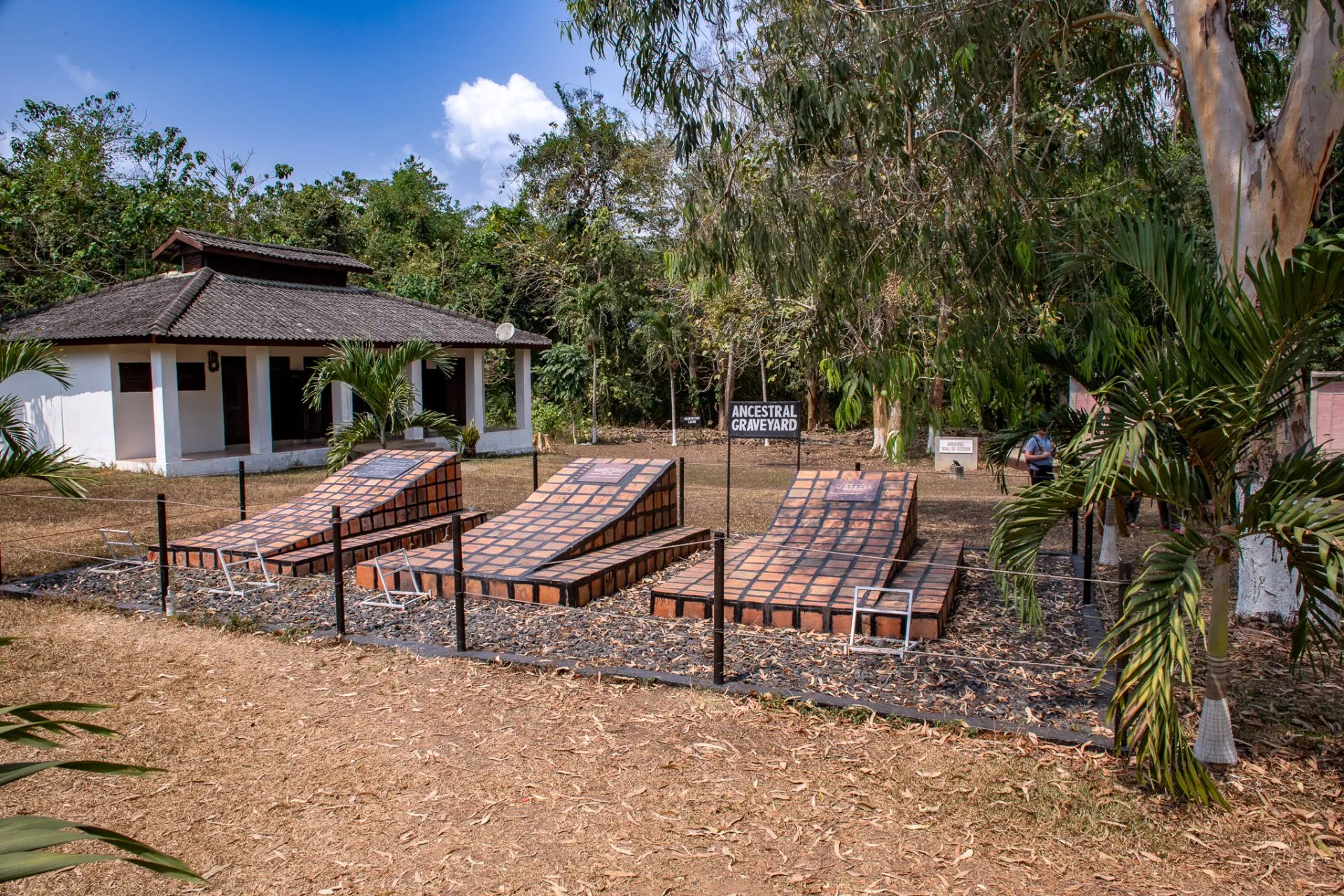
The Memorial Garden of Return
View the tombs of enslaved Africans’ remains that were returned to Ghana from the USA and Jamaica in 1998 and interred here as a symbol of homecoming.
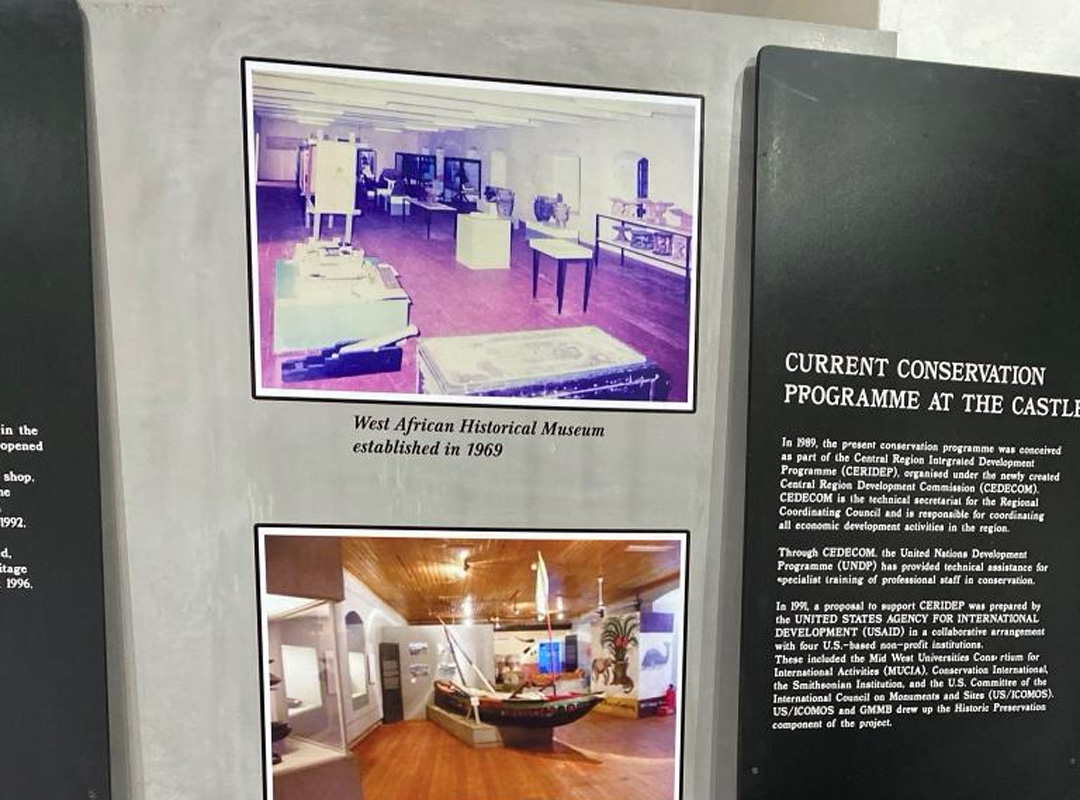
Museum Exhibits
Learn about the slave trade history, personal stories, and the cultural significance of the site through curated displays.
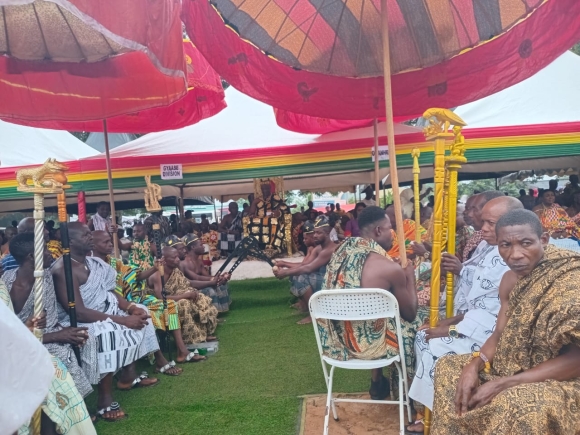
Annual Emancipation Day Events
Join ceremonies every August, with cultural performances, traditional drumming, and remembrance activities attended by Ghanaians and the diaspora.
Hours, Contact & Essentials
Opening Hours: Daily, 9:00 AM – 5:00 PM (varies during events).
Phone: +233 (0) 302 985 069 (Ghana Tourism Authority, Central Region office).
Entry Fees: Small entrance fee applies; different rates for Ghanaians and foreigners.
Guided Tours: Available at the visitor centre.
Getting There
From Cape Coast: About 40 km (≈1 hour drive) on the Cape Coast–Kumasi highway.
From Kumasi: About 180 km (≈3–4 hours’ drive).
Public Transport: Trotros and buses between Cape Coast and Kumasi stop near Assin Manso town; from there, taxis can take you to the site.
Travel Tips
Wear comfortable walking shoes — the path to the river can be uneven.
Bring water and sun protection, especially during midday visits.
Be respectful — this is a memorial and sacred site for many.
Best to visit with a guide for proper historical context.
Plan your visit around August 1st (Emancipation Day) for cultural richness.
Nearby Attractions
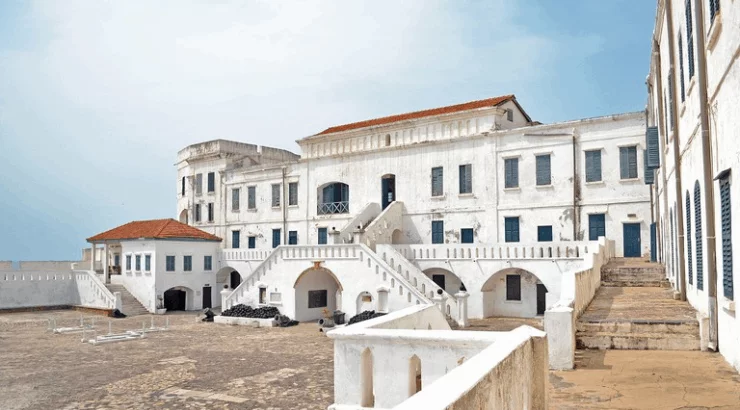
Cape Coast Castle
UNESCO World Heritage Site, ~1 hour away.
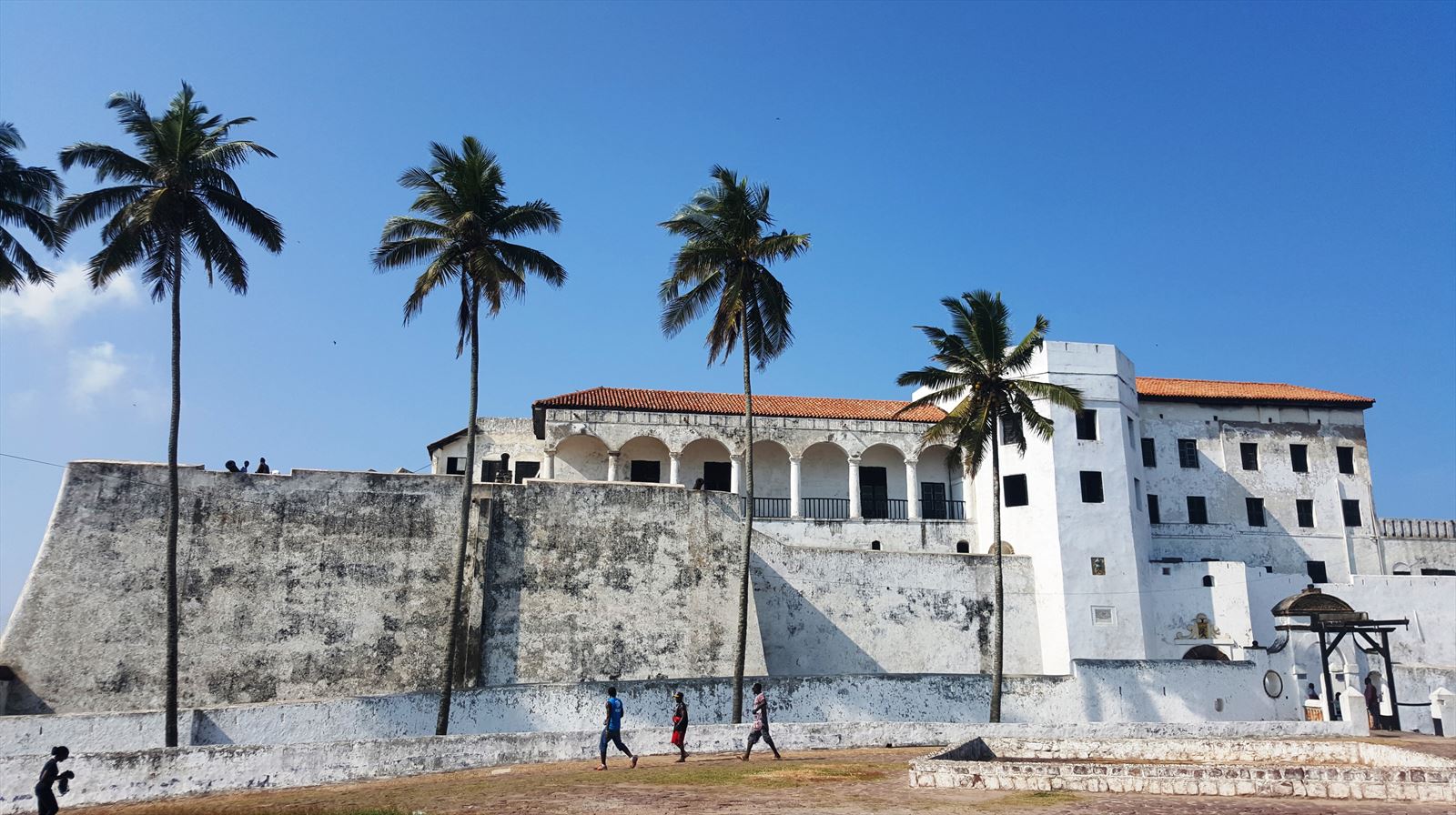
Elmina Castle
Another major slave trade site, ~1 hour 15 minutes away.
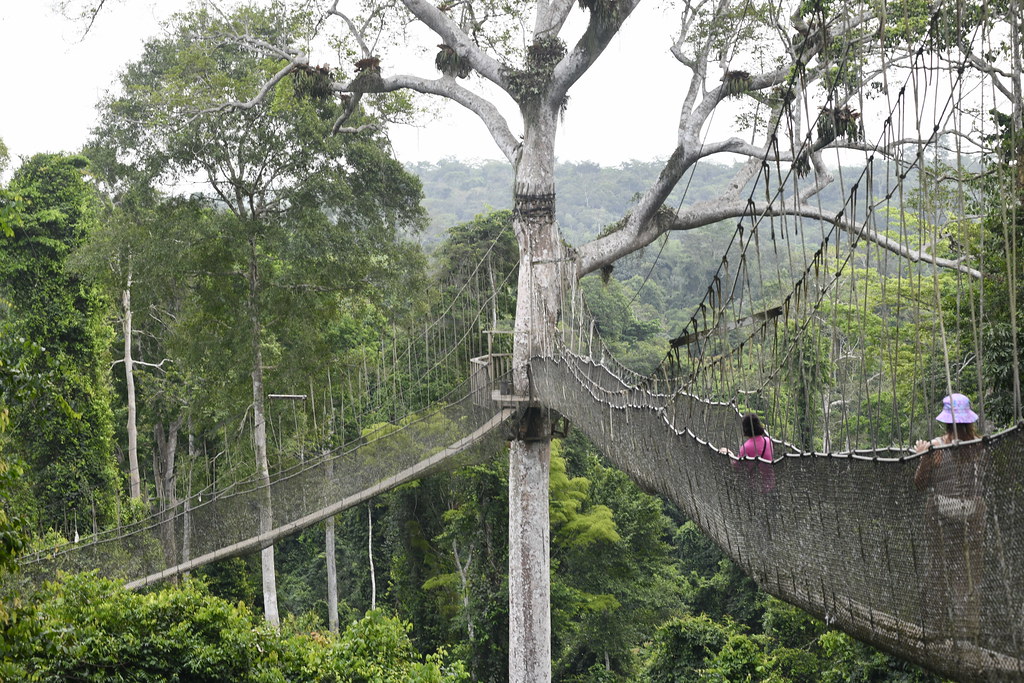
Kakum National Park
Canopy walkway and rainforest, ~45 minutes away.
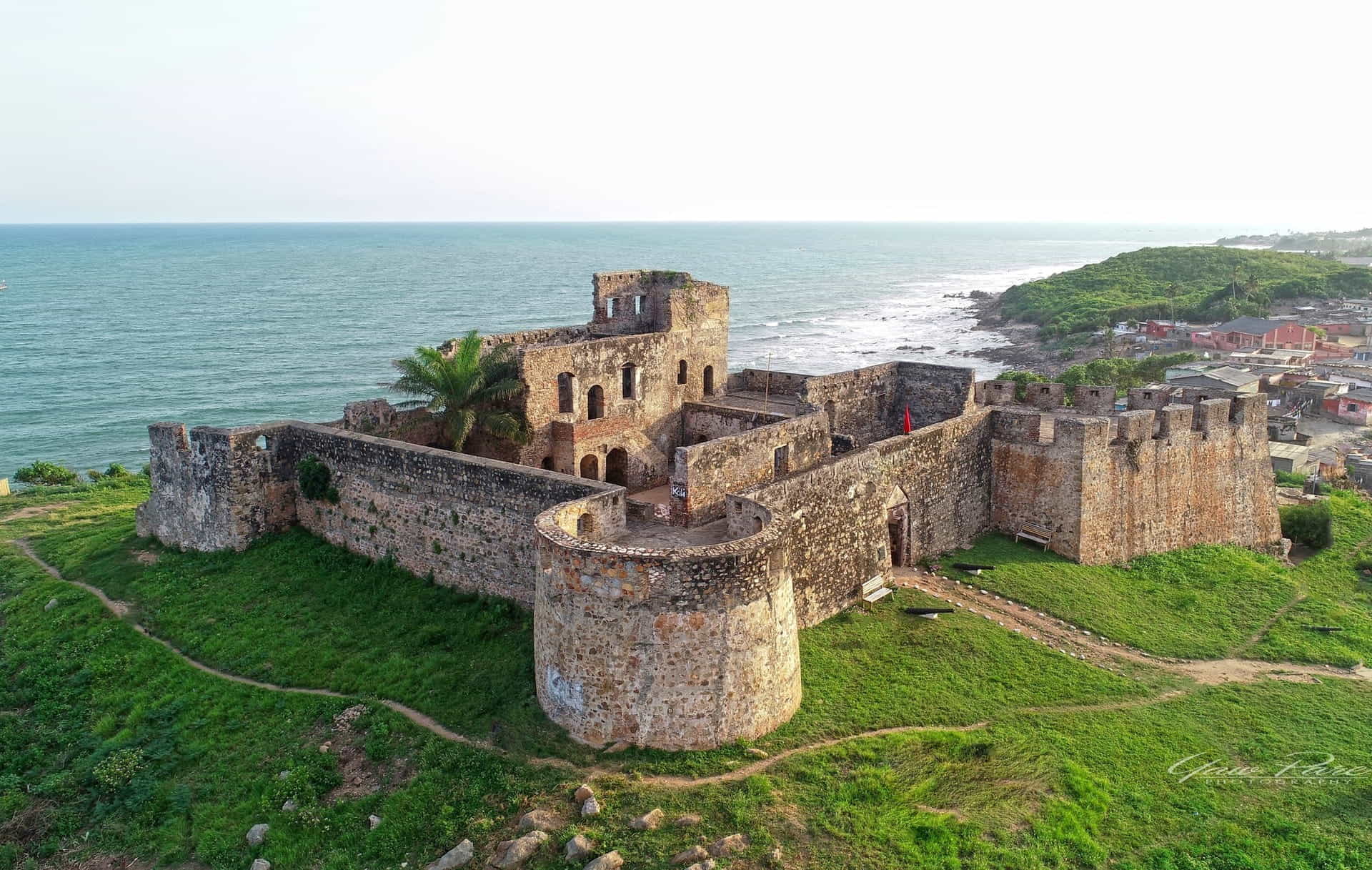
Fort Amsterdam (Abandze)
One of the smaller forts along the coast, ~1.5 hours away.
Nearby Hotels
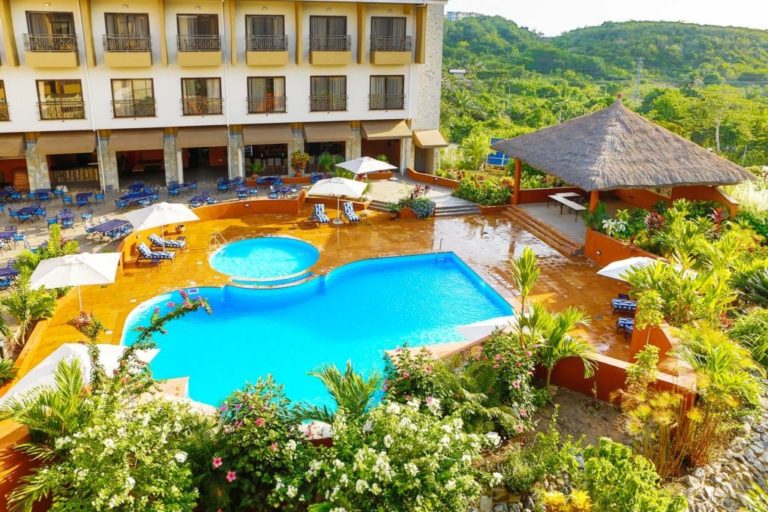
Ridge Royal Hotel – Cape Coast
(modern, pool, restaurant, gym).
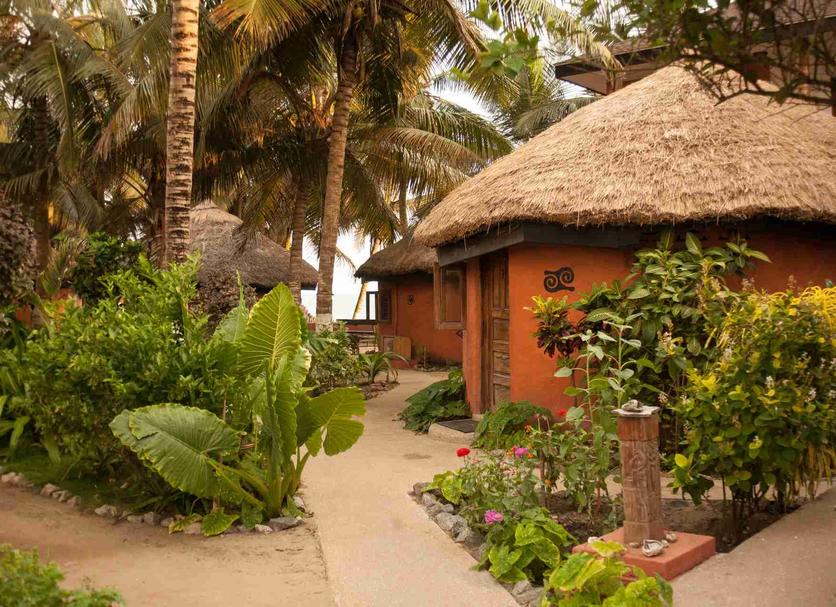
Oasis Beach Resort – Cape Coast
(beachfront guesthouse, popular with backpackers).
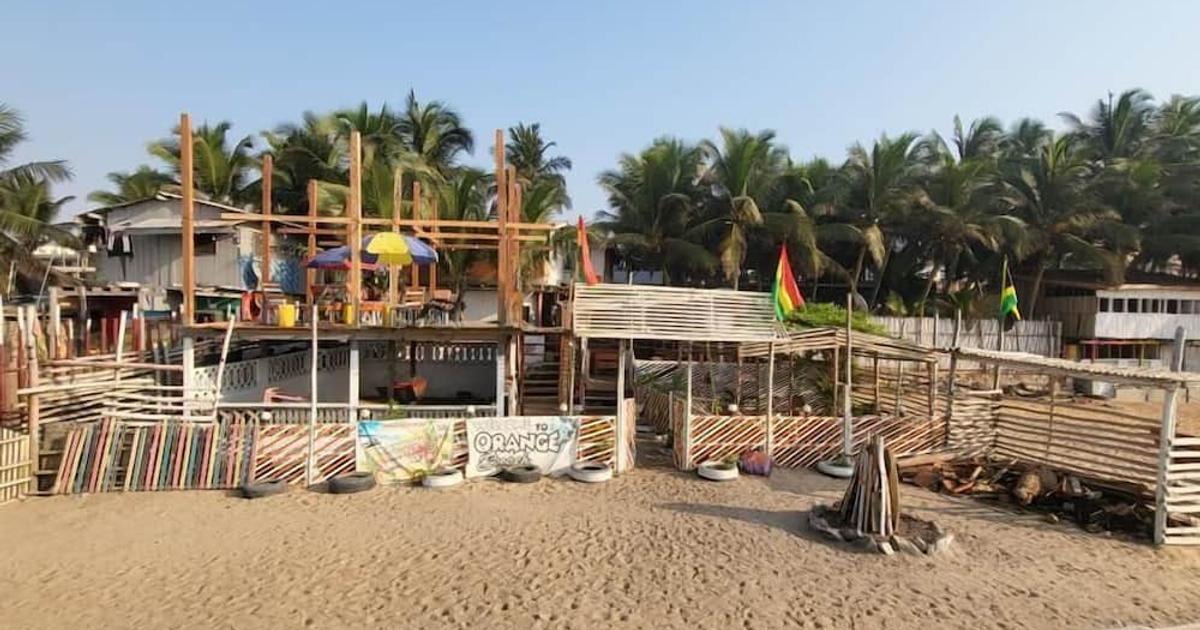
Orange Beach Resort – Cape Coast
(budget-friendly, near the castle).
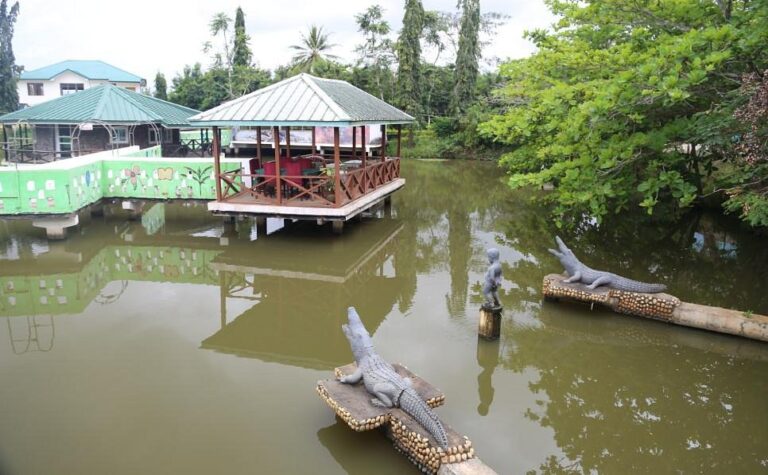
Hans Cottage Botel – Kakum Road
(eco-lodge, crocodile ponds, family-friendly).
Frequently Asked Questions – Assin Manso Slave River Site
What is the significance of the Slave River at Assin Manso?
It was the “last bath” site where enslaved Africans were forced to wash before being marched to coastal castles such as Cape Coast and Elmina.
Where is Assin Manso located?
Assin Manso is in the Central Region of Ghana, along the Cape Coast–Kumasi highway, about 40 km from Cape Coast.
Why is Assin Manso famous today?
It is a memorial site where repatriated remains of enslaved Africans from the diaspora were reburied in 1998. It also hosts Ghana’s annual Emancipation Day celebrations.
When is the best time to visit?
The site is open year-round, but August 1st (Emancipation Day) is the most culturally significant time, with ceremonies and performances.
What can visitors see at the site?
Highlights include the Slave River (“Ndonkosuo”), the Memorial Garden of Return, exhibits about the slave trade, and remembrance trails.
How much time should I plan for a visit?
A guided tour typically lasts 1–2 hours, but visitors often spend longer reflecting or exploring nearby attractions.
How do I get there from Cape Coast?
It’s about 40 km (≈1 hour by car) north of Cape Coast. Trotros and buses between Cape Coast and Kumasi pass through Assin Manso.
Is photography allowed?
Yes, visitors may take photos, but respect is encouraged, especially during ceremonies or memorial events.
Is it suitable for children?
Yes, children can visit, but guardians should prepare them for the heavy history and guide them through the experience.
Are there hotels nearby?
Yes. Many visitors stay in Cape Coast, Elmina, or eco-lodges along the Kakum Road, all within 1 hour’s drive.



